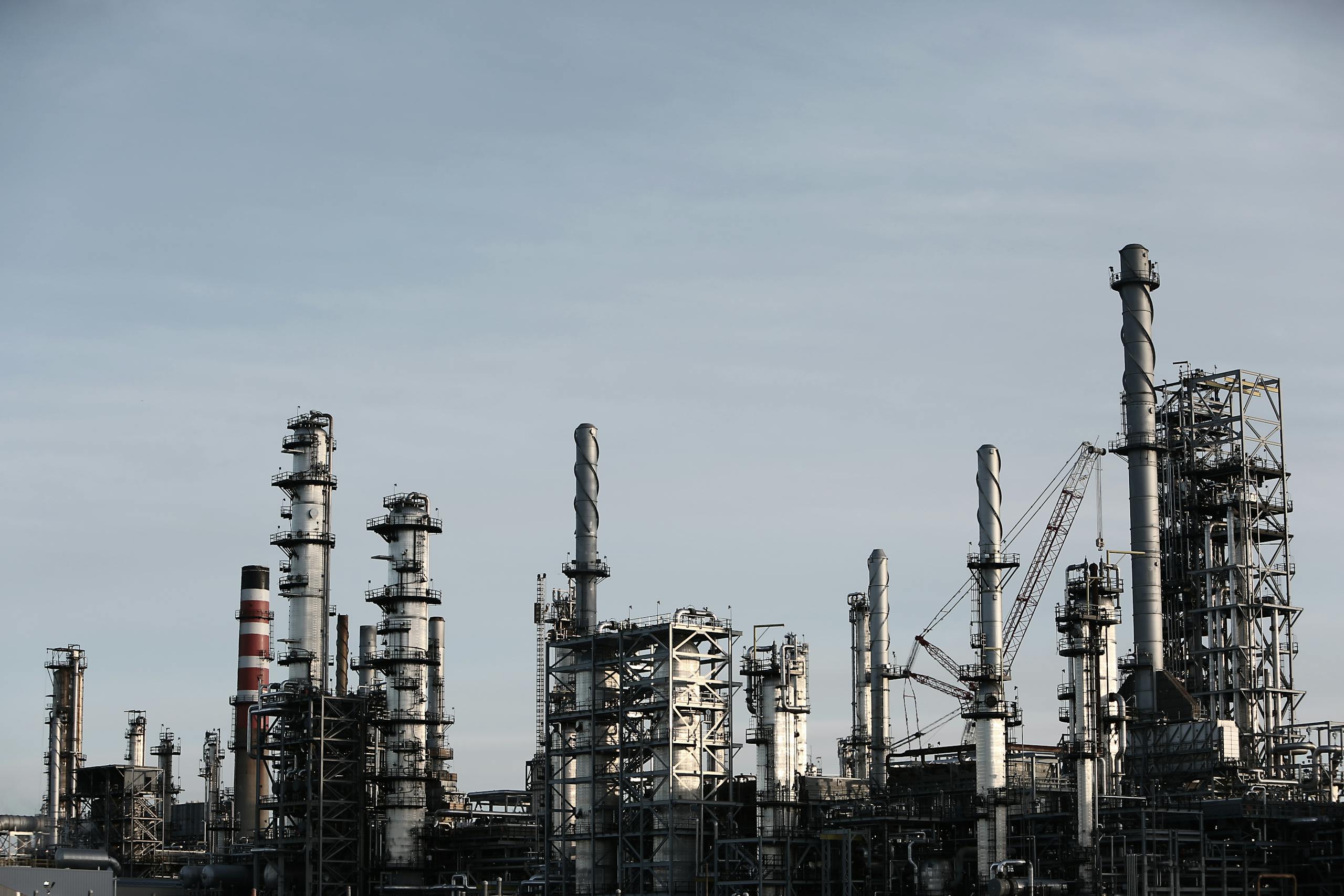Insurance for High-Risk Industries: Essential Coverage Options
In the fast-paced world of high-risk industries, having the right insurance is more than just a precaution—it’s a critical component of a sustainable business strategy. Whether you’re working with heavy machinery, hazardous materials, or in unpredictable environments, your business faces elevated operational risks that standard insurance policies may not fully cover.
This article explores the vital role of insurance in safeguarding high-risk industries, outlining the most important coverage options available. We’ll also highlight how specialised business insurance can ensure your operations are compliant, resilient, and prepared for the unexpected.
Understanding High-Risk Industries
A high-risk industry is generally defined by the presence of significant operational hazards that could lead to financial loss, injury, or environmental damage. These industries often involve dangerous work environments, exposure to chemicals or flammable materials, or a high likelihood of injury to employees or third parties.
Examples of high-risk sectors in Australia include:
- Construction and Civil Engineering
- Mining and Quarrying
- Agriculture and Forestry
- Transport and Logistics
- Manufacturing
- Petroleum and Chemical Processing
- Waste Management
Each of these sectors presents unique challenges that standard business insurance policies often fail to address adequately.
Why Specialised Business Insurance Matters
In hazardous industries, your insurance must go beyond general liability or property protection. Specialised business insurance provides tailored coverage designed to manage the intricate risks associated with dangerous operations.
A standard business policy might exclude or limit coverage for specific incidents that are more likely in high-risk industries, such as equipment malfunctions, chemical spills, or scaffolding collapses. Specialised policies are crafted to address these gaps, providing peace of mind and helping to mitigate major financial exposure.
Essential Types of Coverage for High-Risk Industries
1. Public Liability Insurance
This is a non-negotiable for any high-risk business. Public liability insurance protects your business if a third party (such as a customer or passer-by) suffers injury or property damage due to your operations. For example, in construction or mining, falling objects or unsecured machinery could easily result in claims.
In Australia, public liability insurance is not legally required in all industries, but it is considered a critical form of protection and may be mandatory for licensing or regulatory compliance in high-risk sectors.
2. Product Liability Insurance
If your business manufactures, supplies, or sells goods, product liability insurance covers injury or damage caused by defects in those products. In high-risk industries, where machinery or chemicals are used or distributed, the consequences of a faulty product can be severe—making this form of insurance essential.
3. Workers’ Compensation Insurance
Workers’ compensation is compulsory across all Australian states and territories. It covers medical expenses, rehabilitation, and lost wages for employees injured at work. In high-risk sectors, where the potential for workplace accidents is significantly greater, having sufficient workers’ compensation coverage—and actively managing workplace safety—is vital.
Each state has its own workers’ compensation scheme, so it’s essential to ensure compliance with your local jurisdiction (e.g., WorkCover QLD, icare NSW, or WorkSafe VIC).
4. Environmental Liability Insurance
For industries that interact heavily with the environment, such as waste management, mining, or chemical processing, environmental liability insurance offers crucial protection. It covers clean-up costs, legal expenses, and third-party claims stemming from environmental damage caused by your business operations.
With Australia’s environmental laws becoming increasingly stringent, this form of coverage helps ensure compliance while also providing financial protection in the event of accidental pollution or contamination.
5. Professional Indemnity Insurance
Often overlooked in high-risk industries, professional indemnity insurance is important if your business provides design, engineering, or consulting services. If a client suffers loss due to an error or omission in your professional advice, this insurance covers legal costs and damages.
For instance, an engineer designing safety protocols for a mining operation could be held liable if flaws in the design lead to an incident—even if they were not directly involved in the operation.
6. Contract Works Insurance
This policy is especially relevant for construction companies. It covers loss or damage to a building project during construction, including theft of materials, vandalism, fire, and weather damage. Given the value and complexity of high-risk construction projects, contract works insurance is indispensable.
7. Plant and Equipment Insurance
Most high-risk industries rely heavily on machinery, tools, and specialised equipment. Plant and equipment insurance provides protection against accidental damage, breakdowns, theft, and even hiring costs for replacement machinery. This type of policy is often tailored specifically to the type and value of equipment you use.
8. Business Interruption Insurance
When disaster strikes, getting your operations back online can take time. Business interruption insurance covers lost income and operating expenses while your business recovers from a covered event. In high-risk sectors, where downtime can be especially costly, this coverage can be a financial lifeline.
9. Cyber Liability Insurance
As industries become more digital, even high-risk sectors must protect against cyber threats. Cyber liability insurance covers data breaches, ransomware attacks, and the associated legal and recovery costs. This is crucial for companies managing large volumes of sensitive data or operating remotely controlled machinery.
Key Considerations When Choosing a Policy
When selecting insurance for your high-risk business, it’s important to look beyond just premiums and limits. Consider the following:
- Policy exclusions – Ensure the policy doesn’t exclude key risks inherent to your industry.
- Claims history – Be honest about your claims history to avoid denied coverage.
- Customisation – Choose a provider who offers tailored policies suited to your operational needs.
- Regulatory compliance – Your insurer should understand Australian regulations, ensuring your coverage meets all legal requirements.
It’s also wise to conduct regular insurance audits to ensure your policy evolves alongside your business operations.
The Benefits of Working with an Industry-Specific Broker
A broker who understands your industry can offer invaluable advice and access to insurers who specialise in hazardous business coverage. They can help navigate the fine print, explain complex terms, and advocate for your best interests when it comes to making claims.
Working with an experienced insurance broker like Sirius Insurance gives you access to expert guidance and tailor-made policies that provide real protection for your business. Whether you’re in construction, logistics, or manufacturing, our team ensures that you’re not just covered—but covered right.
Why High-Risk Industry Insurance Isn’t Optional
The harsh reality is that operating in a high-risk industry without proper insurance could lead to catastrophic financial loss. One lawsuit, environmental incident, or injured employee can easily bankrupt a business that’s not adequately protected.
With rising litigation, evolving compliance requirements, and growing public scrutiny, the right insurance cover has become a foundational component of responsible business management. It doesn’t just protect your assets—it protects your reputation, your people, and your future.
Conclusion
Navigating the complex world of high-risk industry insurance doesn’t have to be overwhelming. By securing comprehensive, industry-specific coverage, your business can focus on growth, innovation, and performance—without losing sleep over “what ifs.”
Whether you’re drilling in the outback, hauling freight across state lines, or managing a large-scale manufacturing plant, your risks are real—and your protection should be too.
Ready to Protect Your High-Risk Business?
Don’t leave your future to chance. Contact Sirius Insurance today to speak with a specialist and get customised cover designed for your industry. Let us help you build a safer, stronger business—starting with the right protection.







